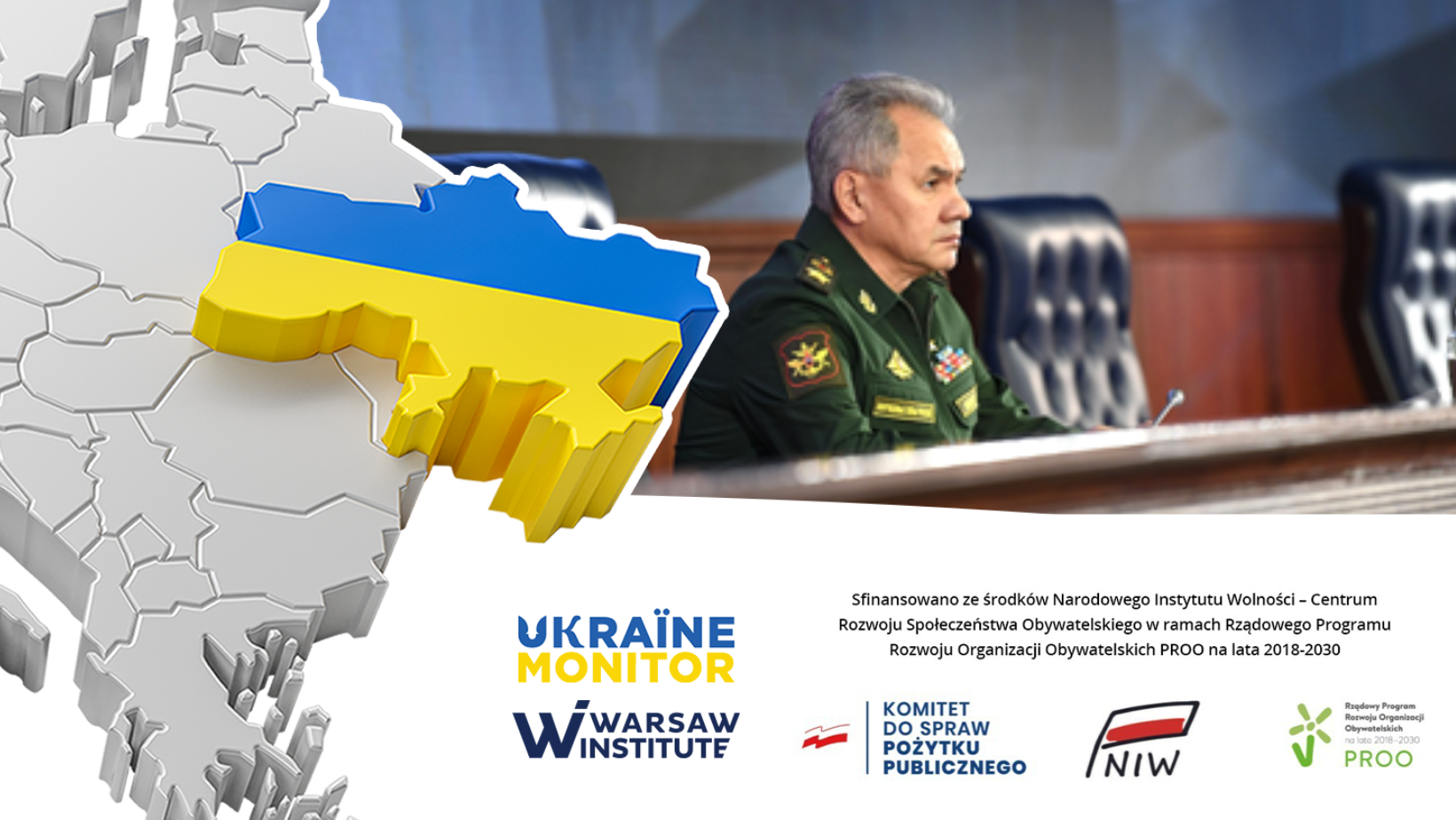
Ukraine Monitor presents the latest news concerning internal and external matters of Ukraine – a unique country where the interests of the East and the West clash almost every day.
Date: 26 October 2022 Author: Grzegorz Kuczyński
Russia’s Shoigu Warns of “Dirty Bomb” Provocation
Russia has again waved the nuclear blackmail, a strategy that the Kremlin has followed since it invaded Ukraine. The Kremlin now claims that Ukraine could stage a false flag operation by detonating a dirty bomb.

Russian Defense Minister Sergei Shoigu spoke with four counterparts from NATO members on October 23. In those three calls, Shoigu conveyed “concerns about possible provocations by Ukraine with the use of a ‘dirty bomb.” Shoigu also held phone calls with Turkish Defense Minister Hulusi Akar, U.K. Defense Secretary Ben Wallace, French Defense Minister Sebastien Lecornu, and U.S. Secretary of Defense Lloyd Austin. Before these calls, the Kremlin-controlled RIA Novosti news agency had claimed that Ukraine could detonate a low-yield nuclear bomb on its own territory in order to blame it on Russia. Kyiv categorically denies the presence of a dirty bomb in Ukraine and the intention to use it. Ukrainian officials said they would invite international observers to the country. Western states have delivered a joint response to the Russian claims. The Foreign Ministers of the UK, USA, and France have issued a statement rejecting Russia’s transparently false allegations about Ukraine. Russia should not use false claims as a pretext to escalate its war in Ukraine, NATO Secretary-General Jens Stoltenberg warned Moscow. John Kirby, a spokesman for the National Security Council, said, “obviously, we’re concerned about these allegations that the Russians raised,” adding they are simply not true. After Shoigu’s initiative, General Valery Gerasimov, the Russian military chief, held phone talks with his U.S. and UK counterpart––General Mark Miller and Admiral Tony Redakin–– to echo Shoigu’s words. The “dirty bomb” allegation was also raised by the Kremlin spokesman, the Russian foreign ministry, and the Russian ambassador to the UN. Russia has waved its threats to intimidate Western allies of Ukraine so they stopped sending weapons to the war-torn country to prevent further escalations. Shoigu’s messages to defense ministries sometimes did not overlap. The chief Russian military issued the most powerful warning to France, as the Western European nation is known for its calls for negotiations. In the phone call with Austin, Shoigu made no mention of the “dirty bomb,” as he would have anticipated a sharp response from Washington.
Support Us
If content prepared by Warsaw Institute team is useful for you, please support our actions. Donations from private persons are necessary for the continuation of our mission.
All texts published by the Warsaw Institute Foundation may be disseminated on the condition that their origin is credited. Images may not be used without permission.













